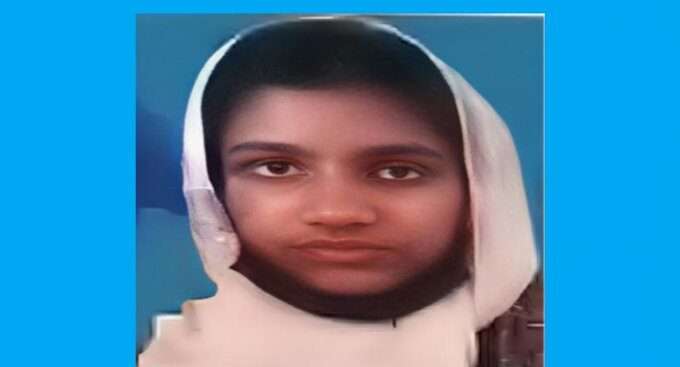In the stillness of an ordinary evening, the world of Shafique Masih, a humble Christian painter, was shattered beyond repair. His 12-year-old daughter, Saba Shafique, was abducted from the sanctity of their home in Lahore by a man twice her age. The perpetrator, Muhammad Ali, a 35-year-old married Muslim neighbor, not only abducted her but took her across provincial lines, forcing her into a fake marriage after an unlawful conversion to Islam.
Shafique Masih’s voice trembles with anguish as he recounts the horror that unfolded on January 5th. His little girl, his precious child, vanished from Walton Model Colony, her life forever altered by a cruel and calculated act of violence. Days later, he discovered that Ali had transported her to Shaheed Benazirabad city in Sindh Province, where he forged documents to manipulate the law. The marriage certificate, riddled with deceit, claimed Saba was 18. But her birth certificate, the undeniable proof of her innocence, declared otherwise—she was only 12 years and 9 months old.
“This is a travesty,” Masih cries. “How can the world accept such a blatant crime? My daughter is a child, yet they have stolen her childhood, her dignity, and her freedom.”
The deception did not end with the forged documents. The police, the very institution sworn to uphold justice, became complicit in the miscarriage of truth. In the First Information Report (FIR), they conveniently altered Saba’s age, stating she was between 15 and 16 years old. When Masih confronted them, he was met with hollow reassurances. “They told me it would strengthen my case,” he said bitterly. “But I know the truth—this is just another ploy to weaken my plea.”
A month has passed since Saba was taken, and Masih’s despair has only deepened. Each day, he stands before the police station, pleading for his daughter’s return, but his cries go unanswered. The officers offer excuses, claiming bureaucratic red tape prevents them from traveling to Sindh to recover Saba. Three weeks have slipped by, and still, they have done nothing.
Ali, emboldened by the law’s failure, has gone a step further. He has filed a petition in the Hyderabad Sessions Court, seeking legal protection for his abhorrent crime. This is a known tactic, a cruel game played by abductors who seek to strip families of any legal recourse. Masih knows this all too well but clings to hope. “My Saba will tell the truth when she is rescued,” he insists. “She is just a child, forced into silence. But she will speak when she is free.”
Christian lawmaker Ejaz Augustine echoes Masih’s agony, decrying the epidemic of forced conversions in Pakistan. “This is not an isolated case,” he says grimly. “Our young Christian girls are being stolen, their identities erased, their innocence defiled. And the government remains deaf to our pleas.”
Bishop Azad Marshall of the Church of Pakistan is resolute in his demand. “Raising the minimum marriage age to 18 is the bare minimum,” he asserts. “Why does the government hesitate? Every delay is another stolen child, another shattered family.”
This is not just about Saba. She is one among hundreds, among thousands. A nameless tide of innocent girls, torn from their families, their lives rewritten by those who prey upon the powerless. And yet, those in power look away. The courts turn their backs. The police drag their feet. The government stays silent.
But the cries of fathers like Shafique Masih will not be silenced. They will echo through the halls of justice, through the corridors of power, until the world is forced to listen.
Because no child deserves to be stolen.
No father should have to beg for his daughter’s return.
And no crime like this should ever be tolerated.
